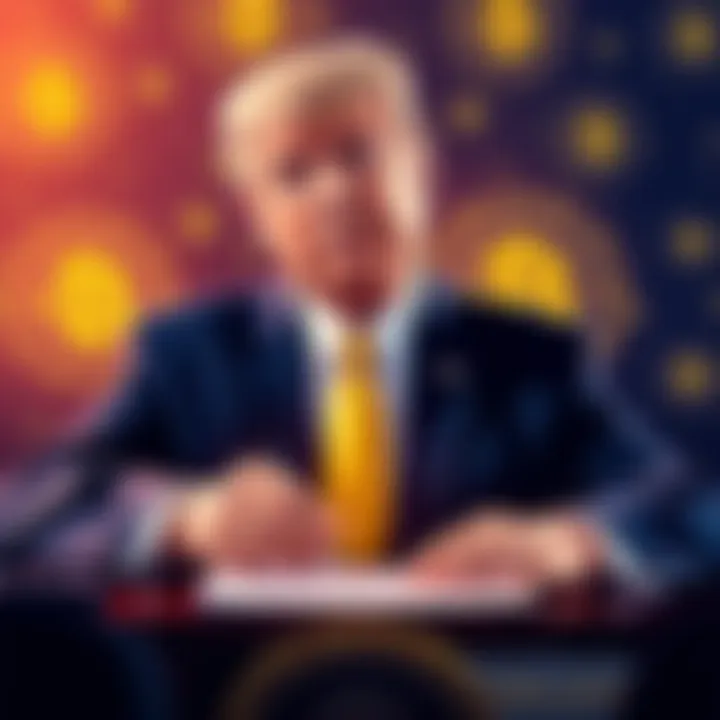Trump Pardons Binance Founder | Signals End of Crypto War
Edited By
Yuki Tanaka

A surprising move from President Donald Trump has shocked the crypto community. Trump granted a presidential pardon to Changpeng Zhao, the head of Binance, on October 24, 2025, signaling a potential shift in the ongoing regulatory scrutiny of cryptocurrency platforms. This development has ignited controversy, raising questions about implications for market fairness and backroom dealings.
Context and Significance
The pardon comes amidst a turbulent regulatory climate for cryptocurrency businesses. Critics are pointing to Zhao's pardon as part of a broader pattern of corruption—one that includes suggestive ties between political decisions and major trading actions.
Themes from the Discussions
Corruption Allegations
Some observers claim that political connections allow certain individuals to circumvent consequences that others face.
One commenter noted, "It's all corruption to the core."
Market Manipulation Concerns
The announcement of a scheduled maintenance by Kraken on November 1 has raised eyebrows. This date coincides with Trump's threat of a 155% tariff on China. Commenters suggest this creates a scenario ripe for market manipulation.
As one user pointed out, "After blocking GameStop purchases, Robinhood faced numerous lawsuits for market manipulation."
Unfair Advantage
Individuals close to Trump, such as his son Barron, are accused of profiting from insider knowledge without facing repercussions, prompting concerns about fairness in trading.
"Some users see a direct line from pardons to personal profits, sparking anger and distrust."
Direct Quotes from the People
"The timing is fascinating; it feels premeditated."
"This sets a dangerous precedent for crypto regulation."
The overall sentiment leaning towards skepticism highlights distrust in both regulatory processes and the motivations behind political actions related to cryptocurrency.
Key Insights
🔍 Trump's pardon of Zhao may redefine the future of cryptocurrency regulation.
⚠️ Critics warn this could lead to more significant market instability.
📉 Market manipulators could exploit these pardons for personal gain.
As the crypto community continues to react, the ramifications of this pardon may shape the dialogue around crypto legislation in the coming years. What does this mean for the integrity of trading platforms? Only time will tell.
Future Outlook Amid Uncertainty
Experts believe that the consequences of Trump's pardon for Binance's Zhao could significantly reshape cryptocurrency regulation. There's a strong chance we will see increased scrutiny of connections between regulatory decisions and personal profits in the coming months. Analysts estimate around a 70% likelihood that some lawmakers will propose reforms aimed at enhancing market transparency, while approximately 50% foresee a push for stricter regulations against perceived cronyism in crypto trading. Simultaneously, market reaction could lead to increased volatility, as investors reassess the integrity of trading platforms and regulatory bodies, potentially sparking new initiatives to create a more stable and fair crypto environment.
A Lesson from History's Shadows
Looking back, the 2008 financial crisis offers an intriguing reference point. In that era, certain Wall Street firms were shielded from repercussions while ordinary investors faced chaos. Similarly, the fallout from Zhao's pardon might mirror those dynamics, where high-profile figures maneuver through political corridors, escaping accountability as the masses grapple with instability and loss. This parallel suggests a potential cycle where inequity in the financial landscape breeds distrust, reminding us that while times change, fundamental sentiments often remain the same.
